2022 Legal Update
Legal Update – February 2022
By Jared Hague, Esq.
While there are mountains of content and commentary on the latest legal happenings on the COVID-19 front, the United States Supreme Court's recent rejection of OSHA's emergency temporary standard (aka "the vaccine mandate") and the White House announcement that it intends to withdraw its opposition to the pending legal challenges against the vaccine mandate suggests that Nevada employers may not see any significant changes in workplace regulations over the course of the next month and perhaps longer, as the Omicron variant numbers appear to have peaked and we begin our slow climb out of winter weather.
With this in mind, this month's legal update is intended to draw attention to a different type of surge, a surge in union-friendly regulations and litigation at the National Labor Relations Board, the federal agency tasked with enforcement of the National Labor Relations Act, which in turn is the federal law that governs employees' right to engage in collective action and/or unionize and employers' obligations to recognize and negotiate with employee unions.
It is critical that Nevada employers understand that virtually all private employers are subject to the National Labor Relations Act ("NLRA"), not just those employers with unionized workforces. Even absent the presence of an employee union, the NLRA protects a wide range of employee conduct, such as speech about the employer's wages, hours and working conditions, and it prohibits employers from adopting policies and practices that could have the purpose of "chilling" employee speech and unionizing activities. Thus, the NLRA impacts the lawful scope and application most employers' disciplinary policies and procedures and the content of their written policies such as those found in the typical employee handbook.
Also important is an understanding of the functioning of the National Labor Relations Board ("NLRB") itself. At the top, the NLRB is comprised of five "board members" who act as a quasi-judicial body and decide cases brought before the NLRB. Board Members are appointed by the President to five-year terms, with Senate consent, the term of one Member expiring each year. Because of this turnover rate, coupled with the fact that the President appoints the Board Members with Senate consent, whether the Board is union-leaning or employer-leaning is intrinsically linked to the party of the President in office. On this point, regardless of your personal politics, all observers agree that President Biden's administration is very union-forward. Secretary of Labor Martin J. Walsh has strong union ties and recent NLRB General Counsel appointee Jennifer Abruzzo is a former union attorney. Ms. Abruzzo in particular plays a critical role in setting and pursuing the NLRB's current policy agenda. On Ms. Abruzzo's performance so far, one former NLRB general counsel commented that "[t]o say she's hit the ground running would be an understatement. If she was driving on the highway, a highway patrolman would give her a ticket for speeding. Clearly she's not wasting any time." With this in mind, I highlight here two important policy objectives the NLRB is currently pursuing that could have a drastic impact on private employers of all sizes in Nevada.
First, the Board aims to revive an Obama-era standard of recognizing and approving "micro-units" for bargaining, a standard that the Trump-era Board had reversed. This change would provide unions with a massive advantage in organizing because it allows the union to finely-tailor the composition of the proposed voting unit that is seeking to organize. Employers would only be able to expand the scope of the proposed voting unit, ostensibly giving it an advantage in the employee vote on whether to unionize, if it can show that a larger proposed voting unit has an overwhelming "community of interest" with the employees in the petitioned-for unit. The burden of proof for that standard is incredibly difficult to meet. In practice, for example, employers might see organizing efforts by a group of employees who share a discrete job title on one particular shift, while employees with the same job title on a different shift who might be less union-friendly are excluded from the vote. Dealing with unions in that context can prove incredibly difficult and frustrating, and often opens the door to wider organizing efforts down the road.
Second, the Board is pursuing avenues to expand the scope of which workers are considered to be "employees" for purposes of union organizing and voting rights. In this regard, the Board is adopting a two-pronged approach. It will seek to adopt an independent contractor test under which independent contractors will more easily be able to argue that they are "employees" for purposes of the NLRA, and it will seek to adopt a more expansive definition of who is a "joint employer," meaning that for unionizing purposes private employers may be held to be the employer of not only their own direct employees, but also the direct employees of other legally-distinct entities over which the direct-employer entity may exercise a degree of control.
As for the independent contractor test, the Board has signaled its intention to incorporate the "ABC test" of whether an independent contractor is a de facto employees. The ABC test has three conditions, all of which must be satisfied uphold a worker's independent contractor status: A) The worker must be free from the employer's control with regard to the performance of the work, both theoretically and in fact; B) The worker must perform work that is outside of the usual course of the employer's business; and C) The worker must be engaged in a recognized trade, occupation or business of the same kind as the work that the worker is performing for the employer. This test is widely recognized as favoring recognition of independent contractors as employees, and important to Nevada employers, is significantly easier to satisfy than the state law test for independent contractor status set forth in NRS 608.0155.
As for the joint employment test, the crux of the issue is whether an entity may be held as a joint employer simply because it has the authority to control significant aspect of the employment of a worker, which was the employee-friendly test adopted during the Obama-era Board in the 2015 decision Browning Ferris Industries, versus the more employer-friendly test that Trump-era Board had adopted under which an entity must actually exercise its authority before it may be held as the joint employer of those workers. For example, many employers contract with various other third-party entities for services that give the employer surprisingly wide latitude over the employees of the third-party entity, even though the employer may have little or no direct contact with the employees of the third-party. Under that scenario, according to the current Board, the employer would be joint employer of the third-party entity's employees.
Each of these changes should serve as a warning to Nevada employers to reexamine their independent contracting practices and their contracts with vendors, especially staffing agencies, with whom they are engaged. These changes also highlight the fact that Nevada employers need to take suspicions or threats of organizing activity seriously. Once organizing efforts are formally disclosed to the employer, unions have already been working behind the scenes for weeks or months and have a tremendous head start on the organizing process. Sutton Hague Law Corporation is hosting a February 3, 2022 webinar on union tends with guest panelist Ryan Lile of IRI Consultants, a national leader in anti-organizing services for employers, for an in-depth dive into these issues. Anyone who is interested can sign up for the webinar here. Recordings of the webinar will be available for purchase on the CalNevaLaw.com website for those unable to attend the webinar.





